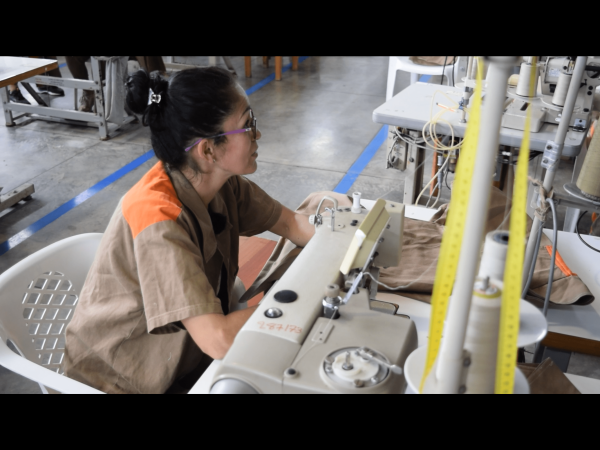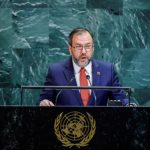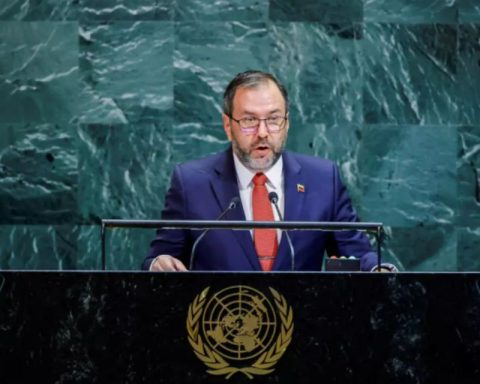Next August 7th, President Gustavo Petro will complete two years in office. Therefore, it is pertinent to evaluate the progress of the main goals that have been established in the National Development Plan (PND) 2023-2026.
Read also: (ABC of the changes that will come to Bogotá’s license plate system after Galán’s announcement)
According to the PND, on the front of ‘Productive transformation, internationalization and climate action’, There has been a 36.41% increase in the last 24 months. The objectives of this axis included, in the reindustrialisation section, reaching 0.5% of the participation of investment in research and development in the GDP.
Now, according to the latest balance of available results, to intensify research, technological development and innovation, for the generation of productive chains with high added value, In 2023, two applied research projects in bioeconomy for productive transformation were launched. The above is to achieve “doubling the goal for this period (9 projects) and progressing by 33.33% with respect to the goal for the four-year period (14 projects).”
The projects that were launched were developed in the departments of Amazonas and Vaupés. “The main objectives focused on strengthening productive alternatives based on the sustainable use of forest resources by local communities”the report detailed.
See also: (What role is Colombia playing after not signing the OAS petition on Venezuela)
Financial inclusion in the regions is one of the pillars of the popular economy.
However, In the sector corresponding to Commerce, Industry and Tourism, there has been a progress of 72.67% of the goals established in the PND.
On the ‘Human Security and Social Justice’ front, the figures highlight that There has been 38.7% progress in meeting the objectives in these last two years of mandate. It is worth noting that, among the goals of this axis, there is one focused on increasing by 6% the income of micro-businesses of the Popular Economy served.
According to the most recent report, in 2023, 9 Zascas reindustrialization centers were put into operation, the objective of which was to develop and strengthen productive units, micro-businesses and small companies.
These centres were located in Ciudad Bolívar (Bogotá): clothing, Medellín (Antioquia): clothing, Bucaramanga (Santander): clothing, Cúcuta (Norte de Santander): clothing, Riohacha (La Guajira): clothing and crafts, Coiba-Picaleña (Tolima); those operating in national detention centres also operate; Espinal (Tolima), Guaduas (Cundinamarca) and Baranoa (Atlántico): clothing.
“The entry into operation of the Manufacturing Zascas exceeded the 2023 goal by 50 percentage points (6 Zascas centers in operation) and 28.1% of the four-year goal was reached (32 Zascas centers in operation). The participation of 28 suppliers from the popular economy authorized in the Demand Aggregation Mechanisms structured and put into operation from 2023 was also achieved, these being 23.93% of the total authorized suppliers. Therefore, the 2023 and four-year goals were exceeded —1.8% and 10%, respectively—”the report detailed.
Likewise, as of 2023, the PND report indicated that They managed to deliver 58 special assets to promote the popular economy and create public and social value. “Therefore, the 2023 target was exceeded by 93 percentage points (30 properties) and 48.33% of the four-year target (120 properties) was achieved.”
Read also: (Millicom and Telefónica’s move: relief for the telecommunications sector?)
How does progress look?
For María Claudia Lacouture, president of the Colombian-American Chamber, AmCham Colombia, although the Government has made progress on relevant points such as the reduction in the deficit of the Fuel Price Stabilization Fund, it has moved within the framework of the fiscal rule and has fulfilled international debt payment commitments, the uncertainty that has been generated by means of contradictory messages, especially in key sectors for the economy, “have increased concerns among investors, reducing investment confidence.”
“The current government announced an industrialization policy that in its main statements seems to be the right path. However, its implementation has left messages that generate uncertainty regarding the differential treatment between foreign investment and national production in the country.”Lacouture commented.
Likewise, the leader of AmCham stated that from now on The Government must promote sustainable economic growth, recover private investment and eliminate uncertainty. “Without investment there will be no growth and we will not be able to achieve the employment goals that the Government has set. Understanding that the best bet is to promote economic growth and that joint work with the private sector is essential to achieve this and thus generate formal and quality employment,” added Lacouture.
On the other hand, Rodolfo Correa Vargas, president of Acopi, stated that, although there is an important conceptual and programmatic advance linked to the MSME sector, such as the emphasis on the Popular Economy, the materialization of this execution has not advanced as the country and businessmen expect.
“Acopi represents a productive sector of more than 1.7 million companies, which houses 99.5% of the country’s business fabric, contributes 65% of employment and generates 35% of the national GDP. It does not take much thought to understand that we are the engine of the national economy and that, by supporting micro, small and medium-sized businesses, in addition to strengthening productive projects, it catapults the generation of employment and business formalization, among other variables.“, Correa Vargas highlighted.
Read also: (High costs led Cementos Tequendama SAS to reorganize)
The union leader also stressed that if the good intentions materialize with the strengthening of the Popular Economy, ““There would be enormous progress in the creation of jobs.”
“Today, for example, 2.6 million Colombians are unemployed, despite looking for work, and according to the DANE, there is an increase of 248,000 people. The recent DANE report even says that the employed population fell by only 130,000 and that the number of working age rose from 39.5 million to 40 million. This makes it clear that the country is not producing the jobs that are needed.“, Correa Vargas added.
BRIEFCASE


















